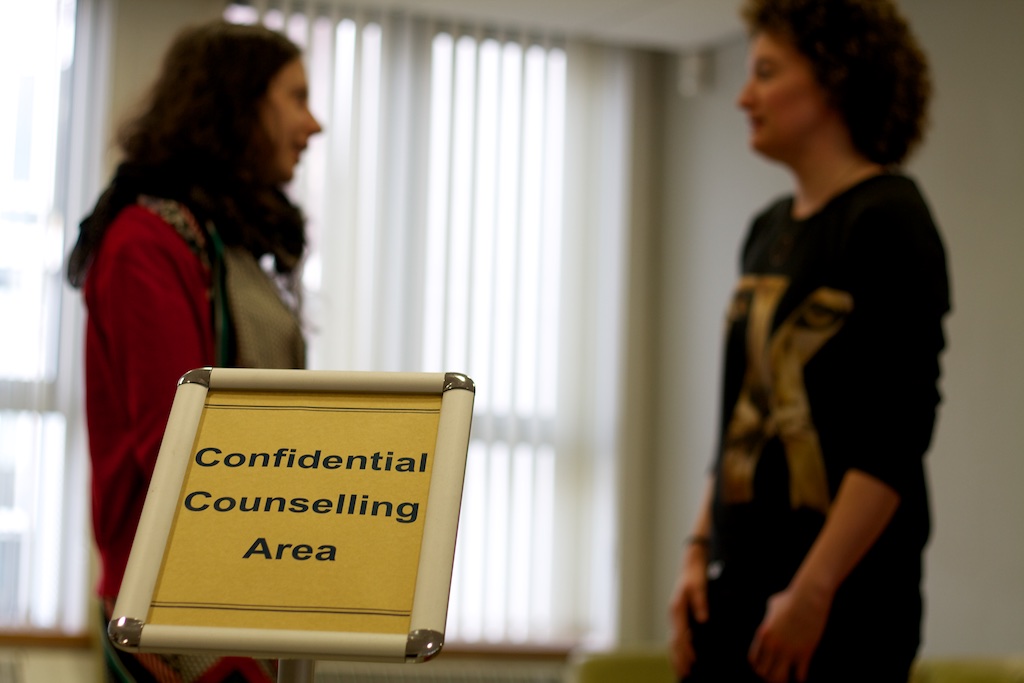With the service expecting to see over 300 more students than at the same time last year, Trinity’s Student Counselling Service and Student Learning Development (SLD) are expanding their supports to include counsellors in Trinity Hall and longer office hours.
The counselling service and SLD are expected to see 1,300 students this term alone. Some of the new measures include opening the service until 8pm on Tuesday and Wednesday and providing two counsellors in Trinity Hall one morning per week. Speaking to The University Times over email, Chuck Rashleigh, Evaluation and Research Coordinator and Student Counsellor explained that the service is “working to keep the waiting list short so that all students who want to meet a counsellor before Christmas can do this”.
“If you add the freshers served by S2S this semester, it’s closer to 5,000 students that we’ve reached in some way during 2016/17”, Raleigh added. Student 2 Student (S2S) is a programme, run by the counselling service, that sees students in second year or higher volunteer to mentor groups of incoming first years to help them with their transition into College.
“SLD, for example, have been inundated with requests for their popular Skills Workshops from schools and departments”, Rashleigh said. For the year July 2015 to June 2016 SLD held 50 departmental workshops, however from July this year they have held 58 departmental workshops so far.
In October, The University Times reported that there had been a 150 per cent increase in demand for counselling service emergency appointments since 2010. Last year, however, use of the Student Counselling Service fell for the first time in six years.
Rashleigh also confirmed that, as part of their wider strategy to build a trainee and volunteer programme at the service, they have recruited a number of qualified volunteer counsellors who will provide a total of two half days of counselling time to build up their hours for accreditation from Irish Association for Counselling and Psychotherapy. For this accreditation, counsellors must complete 450 hours of client contact work after completing a core course.
Their efforts seem “to be helping”, noted Rashleigh. However, he explained that “there is always pressure on appointment availability late in the semester, and without additional counselling rooms we are limited in how many graduates we can recruit”.
The counselling service also introduced a Peer Support drop-in service every Tuesday from 1pm to 2pm during term time. Peer Support is a service that sees students who have training in counselling provide a listening service to fellow students.
Rashleigh explained that the counselling service has been working on a new online service called Headspace that will launch in the new year. This campaign will see students able to share resources, stories, and information about positive mental health through Facebook and Twitter.
The service are “focusing some energies on the preventative space”, with the online services, said Rashleigh, but that there will also be “workshops in departments on stress management, self-care and how to look after each other”. He added, however, that “these will be limited, as it’s not always possible to release counsellors from their casework”.
Commenting on the new improvements, Rashleigh noted that “students can find second semester particularly challenging”. “Any student who finds they are overly anxious, struggling with motivation or just feeling down and unable to lift themselves up is: remember that you’re not alone”, he added.
Correction: December 15th, 2016
An earlier version of this article incorrectly stated that Headspace would allow students contact the counselling service though Facebook and Twitter. In fact it is a platform for students to share positive messages and information on social media.







